If you wanted to help ten kids in the developing world while on a brief vacation to a place you’ve never been, what ideas, tools, or strategies would you recommend?
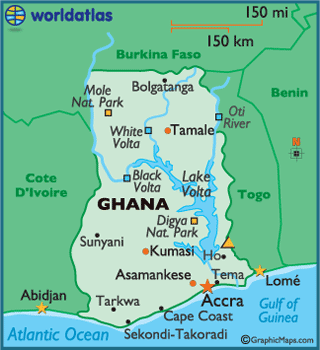 My wife and I and my friend Clement Vidal are going to Ghana, West Africa next month. Rather than ecotourism, we are much more interested in “development tourism,” or mixing our self-serving vacation tourism with some people-serving, capacity-building activity at the same time. Development tourism is a term already in use by a few foresighted tourism groups today. It looks like Voluntourism is the leading term of art in this space, and that’s a great start, but good development goes significantly beyond just volunteering one’s time. It requires money and strategy. I’d love to see both terms get a lot more exposure. In an ideal world both terms would be more popular by now than ecotourism.
My wife and I and my friend Clement Vidal are going to Ghana, West Africa next month. Rather than ecotourism, we are much more interested in “development tourism,” or mixing our self-serving vacation tourism with some people-serving, capacity-building activity at the same time. Development tourism is a term already in use by a few foresighted tourism groups today. It looks like Voluntourism is the leading term of art in this space, and that’s a great start, but good development goes significantly beyond just volunteering one’s time. It requires money and strategy. I’d love to see both terms get a lot more exposure. In an ideal world both terms would be more popular by now than ecotourism.
Appreciating our ecosystem and advancing sustainability are worthy goals but in my book they are quite secondary to people and institutional support. Consider for example how freeing and educating women stops future population growth in developing nations. Better human development is perhaps the single best strategy for improving our global environment. Development tourism also needs its own wikipedia page, to accompany and compete with ecotourism there. Anyone want to create the stub?
There is a lot of cynicism attached to the idea of development tourism by some, with castigation of the “cowboys” and “outsiders” who dare to consider themselves as doing development work when they are in a developing country for any period less than a year. I’m sure a lot of the criticism is justified, but as with any good new idea, it will be easy to fault the pioneers, and it will be poorly done at first. That’s just our fallible, but usually well-meaning human nature.
We can only afford to spend two weeks in Ghana, and having only a few days of development opportunity will be perennially true for the vast majority of tourists who go to the developing world for vacations. Nevertheless, we want to do something more helpful than typical tourism while we are there. So let’s move past the cynics and get on with looking for good solutions for the millions of developed world tourists who are in a similar situation every year. It would be a copout to take the position that there’s nothing I, a white privileged outsider can plan to bring to Africa that will be of value unless I’m willing to visit multiple times and spend years on the ground, neither of which am likely to do.
 StuffYourRucksack.com, a nonprofit started by Kate Humble, a UK television broadcaster and journalist, is one good simple opportunity I’ve found so far in the development tourism space. You might bookmark it for your future travels. On StuffYourRucksack tourists can find local charities near where they’ll be vacationing in the developing world, see small things these charities need, and bring them for them in their suitcases. It took me just 60 seconds on their site to find a development group near where we are going, serving a small community called Akiwidaa fishing village near Sekondi-Takoradi, and to pick something useful to bring.
StuffYourRucksack.com, a nonprofit started by Kate Humble, a UK television broadcaster and journalist, is one good simple opportunity I’ve found so far in the development tourism space. You might bookmark it for your future travels. On StuffYourRucksack tourists can find local charities near where they’ll be vacationing in the developing world, see small things these charities need, and bring them for them in their suitcases. It took me just 60 seconds on their site to find a development group near where we are going, serving a small community called Akiwidaa fishing village near Sekondi-Takoradi, and to pick something useful to bring.
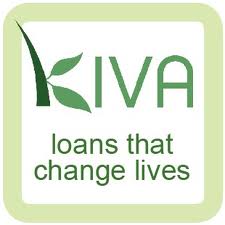 Consider also Kiva.org, a global leader in development microfinance. It would be great to see Kiva add a development tourism section to their website, encouraging you, if you are going to a developing country for tourism, to also bring useful wish-list items, or to work for a short stint with the folks to whom you are loaning money. Just the act of visiting them in person, to check up on your investment, make friends, and give encouragement, may also help them to succeed. I’ve made a small loan through Kiva to First Choice Group, a group of 13 women selling plastic products and other items in Accra. But Kiva doesn’t give me any way to contact these women, and find out if they’d like me to bring anything or meet with them when I’m in Accra. That’s a lost opportunity. So Kiva is presently missing this key human element, which many lenders would love to see.
Consider also Kiva.org, a global leader in development microfinance. It would be great to see Kiva add a development tourism section to their website, encouraging you, if you are going to a developing country for tourism, to also bring useful wish-list items, or to work for a short stint with the folks to whom you are loaning money. Just the act of visiting them in person, to check up on your investment, make friends, and give encouragement, may also help them to succeed. I’ve made a small loan through Kiva to First Choice Group, a group of 13 women selling plastic products and other items in Accra. But Kiva doesn’t give me any way to contact these women, and find out if they’d like me to bring anything or meet with them when I’m in Accra. That’s a lost opportunity. So Kiva is presently missing this key human element, which many lenders would love to see.
 This would be a great addition to social networks like Facebook as well. I’ve asked my contacts at the Foresight Education and Research Network (FERNweb.org) if any can be of help. FERN runs the GlobalForesight.org wiki, a collection of foresight resources around the world. I co-founded FERN a few years ago with a few other futurists, and under its great new Executive Director, Susan Fant, it has been growing steadily in size and scope. Through FERN I reached out to André Roux, who runs the Masters and PhD programs in Futures Studies at the U. of Stellenbosch in South Africa, Africa’s leading foresight training program, and also to the folks who run Foresight for Development, a group of South African futurists promoting greater use of foresight tools to improve Africa’s future. I’ve asked if any of them know any Ghanaian futurists, so I can make contacts when I’m there.
This would be a great addition to social networks like Facebook as well. I’ve asked my contacts at the Foresight Education and Research Network (FERNweb.org) if any can be of help. FERN runs the GlobalForesight.org wiki, a collection of foresight resources around the world. I co-founded FERN a few years ago with a few other futurists, and under its great new Executive Director, Susan Fant, it has been growing steadily in size and scope. Through FERN I reached out to André Roux, who runs the Masters and PhD programs in Futures Studies at the U. of Stellenbosch in South Africa, Africa’s leading foresight training program, and also to the folks who run Foresight for Development, a group of South African futurists promoting greater use of foresight tools to improve Africa’s future. I’ve asked if any of them know any Ghanaian futurists, so I can make contacts when I’m there.
My futurist friend Scott Lemon notes that the Bill and Melinda Gates Foundation, in partnership with Cannes Lions, an advertising industry organization, just funded a multi-round competition for ways to help the public in affluent countries to understand the impact of foreign aid, and to show how development investments are succeeding, particularly on the one-to-one level, the fastest growing segment of foreign aid. As globalization and immigration increase, and as money transfer gets cheaper and easier, remittances, money sent back to family members from immigrants to the industrialized world, has grown so much that it now greatly exceeds foreign direct investment and foreign aid combined in many of the poorest countries. For the entire continent of Africa, remittances account for more than 50% of all development assistance. For some of the poorest African states, and for Haiti in the Americas, remittances account for more than 50% of national GDP.
 One-to-one, bottom-up transnational strategies have worked well before. Back in the 1970’s physicist Robert Fuller pioneered the radical idea of citizen diplomacy, encouraging individuals to do their best to fight Cold War animosities by promoting US-Soviet cultural contacts, extended visits, and mutual aid, regardless of the official attitudes of both countries at the time. Several groups are continuing this courageous culture work in conflict zones such as Israel-Palestine, India-Pakistan, and Iran and North Korea vs. The Rest Of The World. At the same time, what we might call “remittance diplomacy” has grown these last few decades to become the diplomatic elephant in the room. It’s time we recognized this, and made it easier and cheaper for immigrants and guest workers to aid their families back home, and highlighted their stories. It’s also time we grow the ideas and communities of development tourism until they are a significant percentage of the $6 Trillion dollar global Travel and Tourism industry.
One-to-one, bottom-up transnational strategies have worked well before. Back in the 1970’s physicist Robert Fuller pioneered the radical idea of citizen diplomacy, encouraging individuals to do their best to fight Cold War animosities by promoting US-Soviet cultural contacts, extended visits, and mutual aid, regardless of the official attitudes of both countries at the time. Several groups are continuing this courageous culture work in conflict zones such as Israel-Palestine, India-Pakistan, and Iran and North Korea vs. The Rest Of The World. At the same time, what we might call “remittance diplomacy” has grown these last few decades to become the diplomatic elephant in the room. It’s time we recognized this, and made it easier and cheaper for immigrants and guest workers to aid their families back home, and highlighted their stories. It’s also time we grow the ideas and communities of development tourism until they are a significant percentage of the $6 Trillion dollar global Travel and Tourism industry.
As for my little part, I’m interested in taking a few easily-copied actions that will positively impact at least ten people. I also am interested in finding worthy projects that will scale easily. For this reason I favor solutions like technology and business, and in helping women and students, as I think changing their lives can have some of the greatest long-term impact.
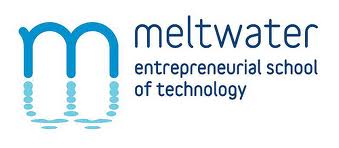
 We’ll be starting out in the capital city, Accra, visiting some of the visionary folks running Ashesi University, a truly inspiring private college educating a new generation of ethical, entrepreneurial African leaders, and Meltwater, one of Ghana’s promising new tech incubators. Then we’ll be heading out to some of the towns and villages along the west coast.
We’ll be starting out in the capital city, Accra, visiting some of the visionary folks running Ashesi University, a truly inspiring private college educating a new generation of ethical, entrepreneurial African leaders, and Meltwater, one of Ghana’s promising new tech incubators. Then we’ll be heading out to some of the towns and villages along the west coast.
 Before I go I’m reading and challenging myself to do some top-down, outsider thinking about what might be valuable to bring. I’ve watched some great online videos, and have found Martin Meredith’s The Fate of Africa: A History of the Continent Since Independence, 2011, a particularly sobering and highly recommended read. Here’s an incredible fact from Meredith’s book. Did you know that the 2010 GDP of the entire continent of Africa, 54 nations and 1.0 billion people, is roughly the same, at $1.2 Trillion, as the single developing country of Mexico ($1.16 Trillion, 112 million people)? This implies that there roughly is nine times less per capita annual economic development in Africa than in Mexico, even though Africa has nine times more souls living there. This is currently the best fact I know to communicate just how large Africa’s political, institutional, and economic challenges are.
Before I go I’m reading and challenging myself to do some top-down, outsider thinking about what might be valuable to bring. I’ve watched some great online videos, and have found Martin Meredith’s The Fate of Africa: A History of the Continent Since Independence, 2011, a particularly sobering and highly recommended read. Here’s an incredible fact from Meredith’s book. Did you know that the 2010 GDP of the entire continent of Africa, 54 nations and 1.0 billion people, is roughly the same, at $1.2 Trillion, as the single developing country of Mexico ($1.16 Trillion, 112 million people)? This implies that there roughly is nine times less per capita annual economic development in Africa than in Mexico, even though Africa has nine times more souls living there. This is currently the best fact I know to communicate just how large Africa’s political, institutional, and economic challenges are.
So let me ask you: If you wanted to bring some technology, financial support, or other aid to a developing country that you’ve never visited, will be visiting only briefly, and may never visit again, what would you be moved to do?
 One clever technology I’m Johnny Appleseeding while I’m there is a centrifugal (spin) dryer. This model, by Laundry Alternative, purchased on Amazon for $150, is small enough to bring in my suitcase. These are common now in high-end gyms. It it takes just sixty seconds after a swim, and very little electricity versus a conventional dryer, for your swim trunks and towels to spin dry to the touch after you place them inside. Such dryers would be hugely useful in all equatorial countries with good electricity, as one’s swimming clothes, towels, and regular clothes are constantly getting wet in frequent rains, but there’s no cheap or quick way to dry them. Hanging them out just doesn’t work in humid climates.
One clever technology I’m Johnny Appleseeding while I’m there is a centrifugal (spin) dryer. This model, by Laundry Alternative, purchased on Amazon for $150, is small enough to bring in my suitcase. These are common now in high-end gyms. It it takes just sixty seconds after a swim, and very little electricity versus a conventional dryer, for your swim trunks and towels to spin dry to the touch after you place them inside. Such dryers would be hugely useful in all equatorial countries with good electricity, as one’s swimming clothes, towels, and regular clothes are constantly getting wet in frequent rains, but there’s no cheap or quick way to dry them. Hanging them out just doesn’t work in humid climates.
None of the inns had these dryers when we visited Costa Rica last year, so I realized that there was a big opportunity here. Having something like this at all the beach inns would improve the tourism experience in any place that has electricity, and it makes it easy to reuse more and pack fewer clothes and towels. I offered to bring this one and pay half of the cost of it, or $75, for the proprietor of an inn we’ll be staying at in Ghana. The proprietor is also excited to use it for quick-drying some of their sheets during their room refreshes. I’ll also demo it to a few other inns as well in Accra (the capital), to try to get more folks to use them. Ideally, every inn at the beach in Ghana and every other equatorial country would have one of these, and make them easily accessible to tourists. Entrepreneurs: There is a good business opportunity in selling and servicing these globally. Here’s a company in India that makes industrial ones. I wonder how cheaply they could make a hotel version?
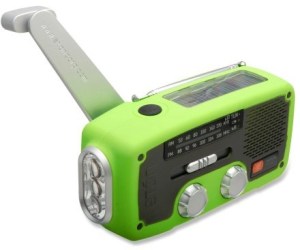
Eton Microlink Radio-Light-Charger
I also want to try to be helpful to ten students in one of the local villages with some technology. After an hour of looking online at useful tech for rural villages I’ve decided to bring ten small solar + hand crank radios, with LED lights for reading at night and during power outages. Theft is a persistent issue in Ghana as in many developing countries, so I’m thinking a small unit you can easily hide away would be best. This Eton Microlink F160 solar and handcrank radio, for $30, may be the best inexpensive version of these devices. You can listen with earbuds without disturbing sleeping family members, a great feature for kids who like to stay up late, and you can attach and recharge USB devices (ipods, videopods, phones) via the crank. Eton’s is the best-built small unit I can find on Amazon at present. The crank, solar cell, and battery all seem to work well, replacement rechargeable NiMh batteries are available, and it’s reasonably water resistant, which will hopefully make this radio particularly useful in places still lacking electricity, like Akiwidaa village.
I’m planning to give them to one of the local schools, with the recommendation, which they may ignore, that they give five of them to their hardest working students and five to their most improved students so far this year. I’m a big believer that rewarding both merit and controllable outcomes in school, like attendance, hard work, improvement, and good citizenship can go a long way to empowering kids to study more, work harder, excel, and support each other in their formative years. I’m looking forward to finding out when I get there if the charity thinks these are good ideas, or if they prefer a different approach.
Ghana’s media are among the freest in Africa since 1995. Telecommunications in Ghana are also growing, with 25% mobile penetration (6M users), but just 3% internet (750K users). There are ~30 TV stations in the country, and ~130 FM radio stations. So after cellular voice and SMS, radio is their best network at present. Call-in shows are particularly popular, and families sit around the radios listening to them, the way the our grandparents in the developed nations did in the 1930’s.
To complement cellular, it looks like radios are a sweet spot for inexpensive technology network development in many underdeveloped countries. Getting some solar powered satellite TV dishes for villages and many analog low-power TV (LPTV) transmitters in the towns could also be a great next step.
Are there any nonprofits anyone knows of that are focused on growing low power radio and TV, and inexpensive cellular networks in developing countries? If so, let us know in the comments, and I’ll list them here.
Adding permanent new systemic networks of distributed, many-to-many communication to a country’s infrastructure is I think one of the most powerful ways of reducing systemic political and institutional corruption and insulation against accountability, transparency, and change. The latter are the greatest problems in our least-developed, most historically exploited countries, as Meredith documents so well in The Fate of Africa, that saddening yet grounding book I recommend above.
Imagine a wearable wrist radio, and a wrist radio+TV, powered by quickly replaceable coin-cell batteries that can be solar charged with a separate small solar charging station. One wrist radio per child. If there are good local citizen-access low power radio stations in the villages for the local community to broadcast on, folks with radios could much more easily get together for sports, cultural events, and other mass activities, including political activism.

 In an era when you can find this wrist radio+TV for $35 on Alibaba, you know a low-cost, bulletproof, solar powered version of this is doable today. A good design would be multipurpose, something that could be worn on a lanyard, clipped to pants, or worn on the wrist per individual taste, like the little two way radio MediVoice Alert Radio seen here.
In an era when you can find this wrist radio+TV for $35 on Alibaba, you know a low-cost, bulletproof, solar powered version of this is doable today. A good design would be multipurpose, something that could be worn on a lanyard, clipped to pants, or worn on the wrist per individual taste, like the little two way radio MediVoice Alert Radio seen here.
So here’s a great $100M development project for a forward-thinking philanthropist. There are 25 million Ghanaians. Give away three million of these devices, in merit based competitions over the next few years, to the 10% hardest-working, most community-oriented kids and citizens in Ghana. Subsidize at-cost access for the rest. Help Ghana’s towns build several new commercial and public-access TV and radio stations, and many more cellular and SMS networks. Keep lowering the cost of this network development philanthropy with competitive bidding, transparency accounting, and long term operation and training staffed primarily by outside experts. Then watch how quickly their levels of entertainment, socialization, education, activism, and democracy improve. Others will soon copy your success in all the least-corrupt, most communication-permissive underdeveloped countries of the world, and later, everywhere. Any takers?
If you have any advice to offer before we go on our trip, I’d love to hear it, thanks.

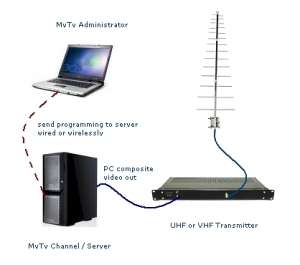

Hi John, this sounds like an experience of a life-time. As night closes in here in Dresden, Germany, I will let you know about some concrete ideas later on this week. Probably my African friends in Uganda, Botswana, and South Africa have also some ideas.
I like the emphasis on establishing social / cultural connectivity. Leveling up key kids by getting them consistent access to the web and media seems like a very high-leverage play that gradually raises the tide.
Thanks Ralf and Alvis. I really appreciate the encouragement to look for small things we can do to help others, as tourists. They are definitely out there!
Amazing trip, can’t wait to hear your results!
I wonder how stellar new opportunities for education will mesh with local culture and enthusiasm. How much potential stands to be unlocked by delivering smartphones, and how likely/interested are Africans in taking advantage of this? How will they use this new technology, and how will it change them?
Also: Men vs Women in Africa — I’ve heard Women are more frequently the responsible and forward thinking ones, and I wonder how true this is, from your perspective.